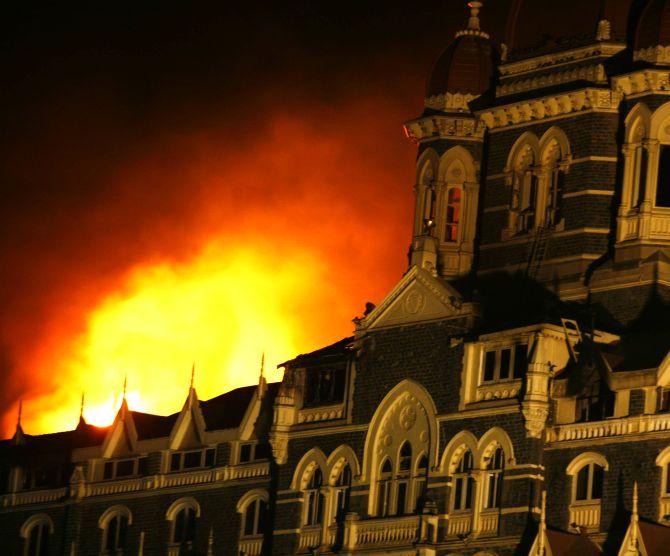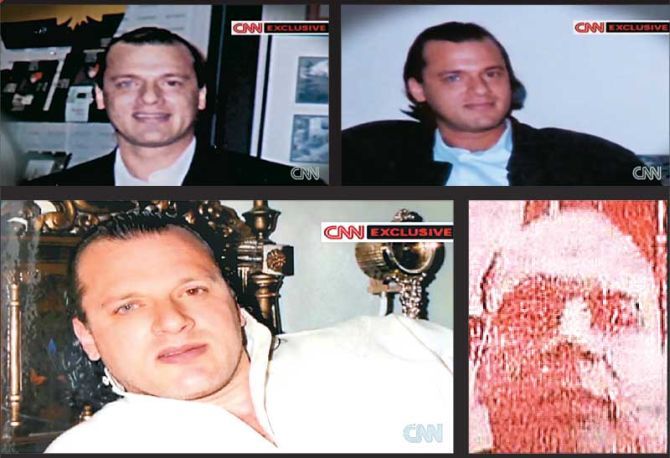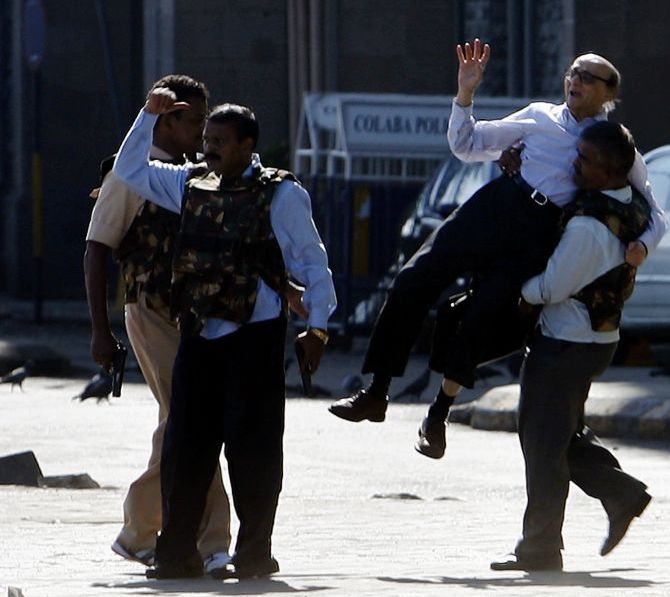Photographs: Jayanta Shaw/Reuters Vicky Nanjappa
India has often blamed the United States of America for the lack of proper cooperation in terms of intelligence sharing prior to the 26/11 attacks on Mumbai. Today with claims being made about arrested Pakistani American terror operative David Headley using an Indian agent code named “honey bee”, the doubts become stronger.
Counterterrorism expert Stephen Tankel, author of Storming the World Stage, the story of Lashkar-e-Tayiba, is a non-resident scholar at the Carnegie Endowment, where his research focuses on insurgency, terrorism, and the evolution of non-State armed groups.
Tankel tells Rediff.com’s Vicky Nanjappa in this interview that Washington clearly recognises the Lashkar as a problem. He also goes on to add that it would not shock him to find out that Pakistan’s Inter Services Intelligence had recruited an Indian agent for the 26/11 attacks.
You must have heard about the Indian mole in the 26/11 attack, codenamed “honey bee”?
I have read the claims about “honey bee” and the additional indigenous support Lashkar may have received. It would not shock me to find out the ISI had recruited an Indian agent, just as it would not shock me to know the Research and Analysis Wing, had recruited a Pakistani one.
Nor would I be surprised that Lashkar had indigenous support for Mumbai, as it has received for other attacks in the past.
So, all of this is theoretically feasible. Whether any of it is true, I have no idea.
Please …
'Headley's extradition highly unlikely'
Image: A combination of video grabs showing David HeadleyHow has the structure of the Lashkar-e-Tayiba changed in the five years after 26/11?
Overall, the structure looks similar from the outside, though the group has probably done some internal tinkering. Lashkar also launched additional front groups over the past five years, partly in response to the pressure it came under following the 2008 Mumbai attacks.
Along with Jamaat-ud-Dawa, some of those front groups are members of the Difa-e-Pakistan Council. Additionally, its presence in Afghanistan and across Pakistan expanded. And, of course, its social media offerings have increased, as anyone who follows JuD on Twitter knows.
Do you think the ends of justice have been met where the sentencing of David Headley is concerned?
I understand why Indians want Headley extradited and are dissatisfied with his serving a life sentence in the United States. However, the terms of his plea deal with the US make that highly unlikely.
He has provided American officials a lot of information, much of which has been shared with their India counterparts. One expects, and hopes, it has been used to prevent other attacks and degrade militant groups like LeT that both countries consider a threat.
Please …
'Indian response was seriously lacking during the 26/11 attacks'
Image: Police escort a stranded guest from Taj hotel in Mumbai during the 26/11 attacksPhotographs: Arko Dutta/Reuters
The 26/11 terrorists appeared to have a free run for nearly 20 hours of the attack. Why do you think it was so easy for them?
Whether or not the claims about “honey bee” are accurate, it’s impossible to escape the fact that the Indian response was seriously lacking.
There were individual acts of heroism and sacrifice, and we should not forget these. Collectively, however, the authorities were not well enough equipped or prepared to deal with the attack.
Pakistan is conducting a trial of the attack. Do you think they will be able to convict Hafiz Saeed and/or Zaki ur Rehman Lakhvi?
Hafiz Saeed has not been arrested. Lakhvi has been in jail since soon after the 2008 Mumbai attacks. I don’t anticipate he’ll be convicted any time soon, but I would be happy to be proven wrong.
What do you think of America's handling of Pakistan following this attack?
United States officials worked closely with their counterparts in India to identify Lashkar-e-Tayiba as the culprit and quickly trace the attack back to Pakistan.
From what I understand, the US also put pressure on Pakistan to arrest the perpetrators and crack down on LeT. Clearly, the results were far from satisfactory.
I know some in India believe the US does not take the LeT threat seriously, but I believe Washington clearly recognises it as a problem. Unfortunately, like New Delhi, it has yet to find a workable solution.




article